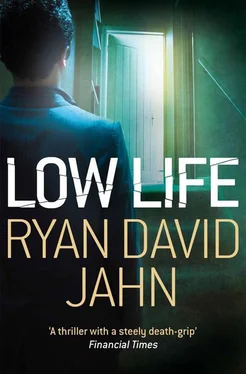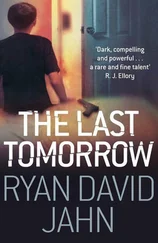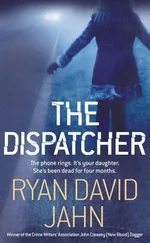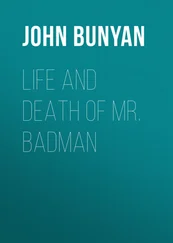It began with someone saying, ‘You got the time?’ But not to him. The voice came from across the street. Simon looked over there and saw a tall guy with a neck tattoo standing only a couple of feet from an old man wearing a moth-eaten yellow cardigan.
‘Let me see,’ the old man said. He had a German accent, his voice thin and reedy.
He pushed back the left sleeve of his cardigan, revealing a silver watch which glistened in what was left of the light. He squinted at the numbers, pulling his head away from his own outstretched arm, apparently far-sighted and without his glasses.
‘I think it’s about—’
Two other men stepped out of the shadows of a brick apartment building – one with a Dodgers cap on his head, the other’s bald pate slick as a polished bowling ball – grabbed the old man’s arms from behind and started pounding at his kidneys. He cried out once or twice, but then his breath must have been gone because after that all he managed were sad little grunts. His legs gave, knees buckling, but the other men held him up and continued to punch at him for a while, his feet dragging on the concrete beneath him as he was punched and jostled, making quiet scuffling sounds like whispers. Then they emptied his pockets of a billfold, removed his watch, and let him crumple to the sidewalk, let him simply fold on top of himself. The guy with the neck tattoo gave him three more kicks to the gut, and then said to one of the others, ‘Get his shoes. I can wear ’em to church.’
‘Get ’em yourself if you want ’em. They’re not my size.’
The guy with the neck tattoo cursed, ‘Lazy bastard,’ and then pulled the shoes off the old man’s feet, revealing plaid yellow socks that matched the cardigan.
‘Hey,’ Simon said, after snapping out of his stunned silence. ‘What are you guys doing?’
But they weren’t doing anything. They’d finished.
‘You want some too?’ the bald one said.
‘No, thank you.’
‘Forget about him,’ said the one with the neck tattoo.
‘It can be a two-for-one night.’
‘No. Fuck him. I’m hungry. Let’s get a taco.’
‘You lucked out this time, fucker!’
They turned and walked away from there. Simon stood motionless a moment or two longer – wanting to make sure they weren’t going to return – and then jogged across the street to where the old man lay motionless.
He knelt down – cigarette dangling from his dry lips, smoke wafting into his eyes, making them water – and felt for a pulse. He felt nothing. If ever a pulse had been there, it was in the wind now. The old man was dead.
When he reached Wilshire he found a pay phone, a small metal box set against a brick wall, and called the police. He did not want to call from his home telephone because he did not want the police to show up and question him for hours about something that had lasted thirty seconds. He told the woman who answered that he had witnessed a mugging. Three men had accosted an old man with a German accent. He told her where it had happened and described the three men as well as he could given the distance and the dim light. He told her that the old man was dead. When the woman asked him his name he simply hung up and walked away.
He walked through the empty lobby and up the creaky stairs and across the leopard-spotted corridor floor to his apartment. He could hear the Korean couple four doors down yelling at each other (though he couldn’t understand them), and somewhere else nearby someone was watching a situation comedy which kept spitting out laugh track ha-has that sounded like a lawnmower trying to start. He unlocked the front door and stepped inside. Before closing the door behind him – before locking out the forty-watt light coming in from the naked bulbs in the corridor ceiling (the fixtures long since shattered or stolen) – he fumbled around in the dark for the switch on the inside wall, found it, flipped it, and with a click the old yellow lamp with its crooked and stained paper shade came to life, lighting up the glossy covers of a few paperback novels, with which it shared an end table, as well as the rest of the room. Then he closed the door, set the deadbolt, and slid the chain into place.
The living room was about twice the size of the bedroom. The walls were stained yellow and white patches where the last tenant had hung pictures were still visible, rectangular evidence that someone else had once lived here. Every time someone in the building flushed a toilet or washed their dishes the rusty pipes behind the walls shook and rattled and moaned with ghostly voices. The brown and red striped couch sagged in the middle and horsehair stuffing poured from holes in the fabric. The coffee table which sat in front of it was made of pressboard and the thin sheet of imitation wood which covered it was peeling at the corners and chipping away. On top of the coffee table, a Mason jar filled with water in which a goldfish swam.
‘Hello, Francine. How you doing?’
He sprinkled flakes of fish food onto the water where they formed a thin scrim on its surface. Francine opened her little black mouth and sucked in bits of it. He stood and watched her eat in silence for a couple minutes and then headed into the kitchen to fix himself dinner.
The whiskey was good and strong and cold on top of the ice cubes in the tumbler. Simon drained the glass and poured himself a second before walking back out to the living room with the glass in one hand and a half-full bottle in the other.
He sat on his couch in the lamplight, sipped his cold whiskey, and listened to a warped Skip James record playing through the rusted horn of an old Victrola he’d found in an alleyway three months earlier, brought upstairs, and repaired. He drank two more glasses of whiskey while the record played. Then it ended and he drank the rest of the whiskey in silence.
In his bedroom he undressed down to underwear and T-shirt. He slipped back into his green pajama bottoms and crawled beneath his brown blanket. It felt good to be in bed. He set the alarm clock and dry-swallowed a pill and removed his glasses and set them on the floor. He touched the sore behind his ear and felt the sting of his finger. He stared at the ceiling, his arms at his sides. The ceiling was lined with cracks from various San Andreas renovations. From here on the second floor, with the bedroom window closed, the sounds coming in from Wilshire were muffled, and if you didn’t listen closely they combined to create a low electric hum, like a refrigerator. But Simon did listen. He listened to people talking as they walked by on the graffiti-covered sidewalk below. The sound of their voices was comforting. The sound of people reminded him that even if he was set apart somehow, the rest of the world was still close by. It was strange: he didn’t usually like to be around people, but he liked to know they were there.
‘—just floating around like radio waves and—’
‘—what I don’t understand is—’
‘—and they train you to think it’s normal. It’s brainwashing and that’s—’
Simon closed his eyes. He could hear his heart beating in his chest. He’d been born with a heart murmur. The aortic valve didn’t close all the way after blood had been pumped through it, and so some flowed back in, creating an audible murmur and threatening to fuck up the whole works. When Simon was a teenager his human heart valve had been replaced by an artificial heart valve, what they called a caged-ball heart valve. He took blood thinners daily; it was blood thinners in the orange bottle that sat on the floor beside his bed. There was a scar running down the middle of his chest – thick as rope, and meaty as cartilage.
Slowly, the sound of his heartbeat transformed into the sound of a drum, and Simon found himself standing on the sidewalk at a parade as a band stomped by, led by a man with a huge bass drum strapped to his chest: thump-thump, thump-thump. He looked around at the other spectators and found that at the top of their necks were cone-shaped funnels leading to, he somehow knew, other universes, and the funnels were all turned toward him, looking at him, swirling emptiness threatening to suck him in. Their bodies were normal. They wore suits and ties and shorts and dresses, but at the top of each, a swirling vacuum. They walked toward him. Simon turned away from the parade and looked for somewhere to run, but—
Читать дальше












